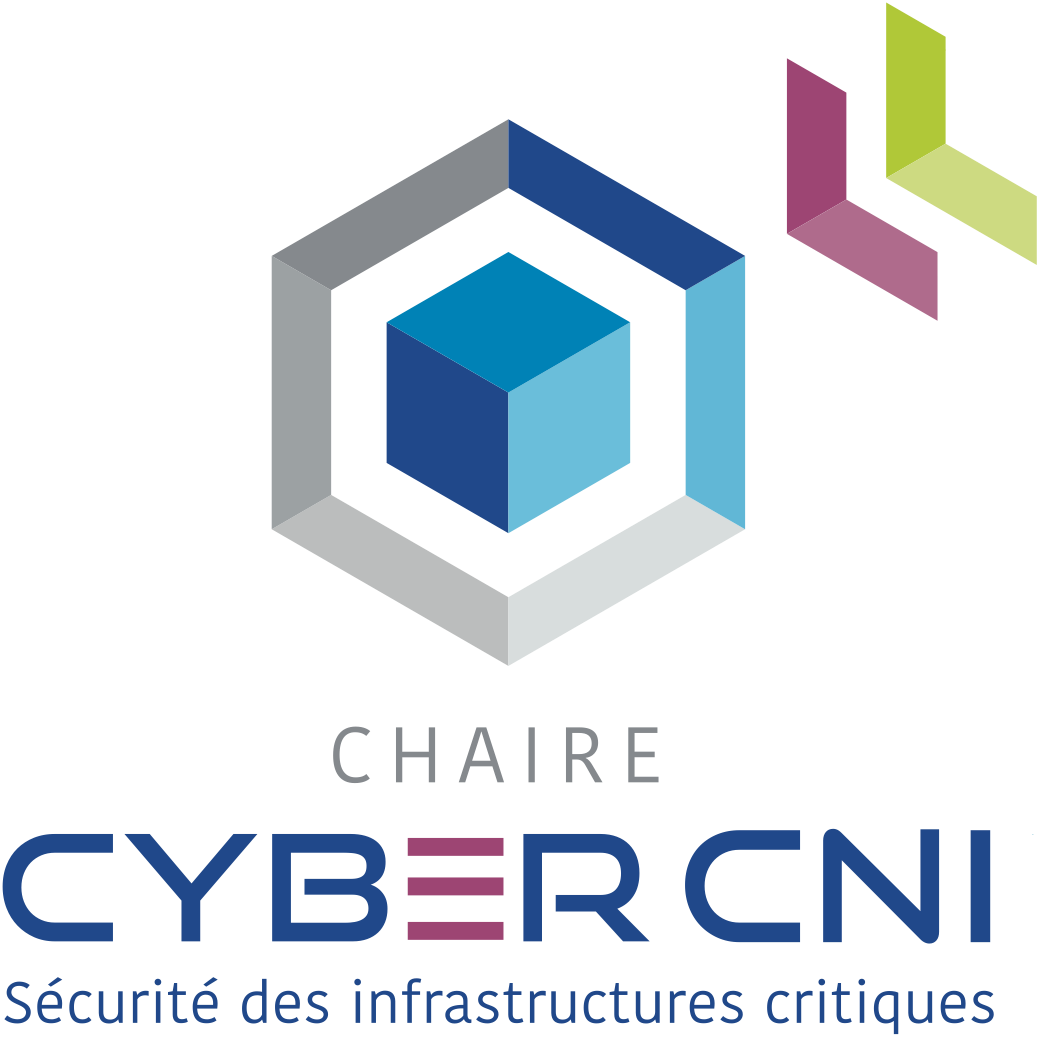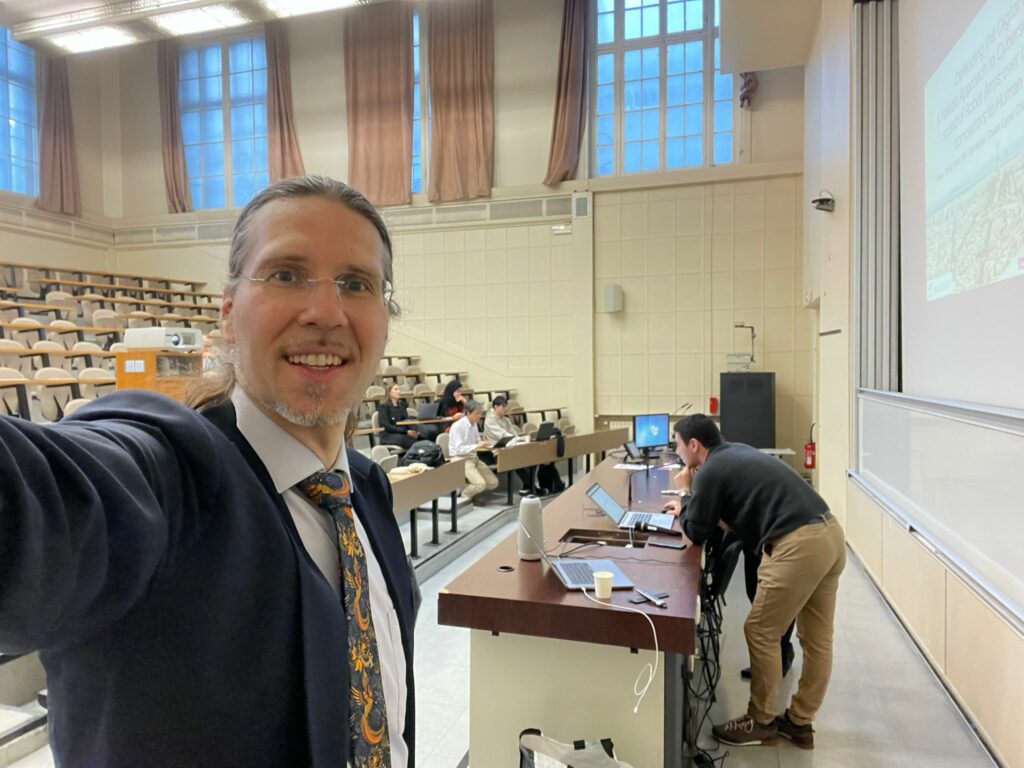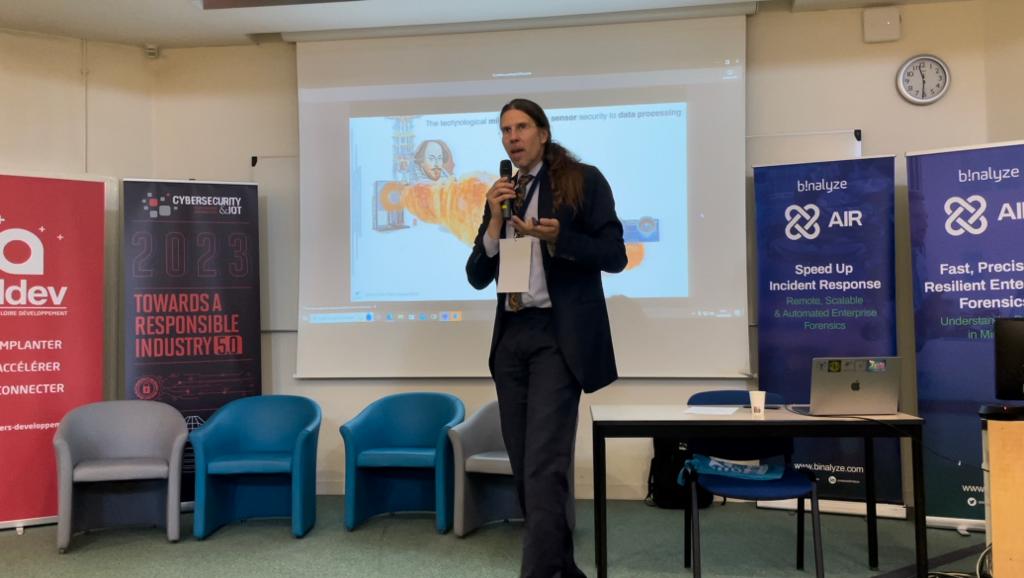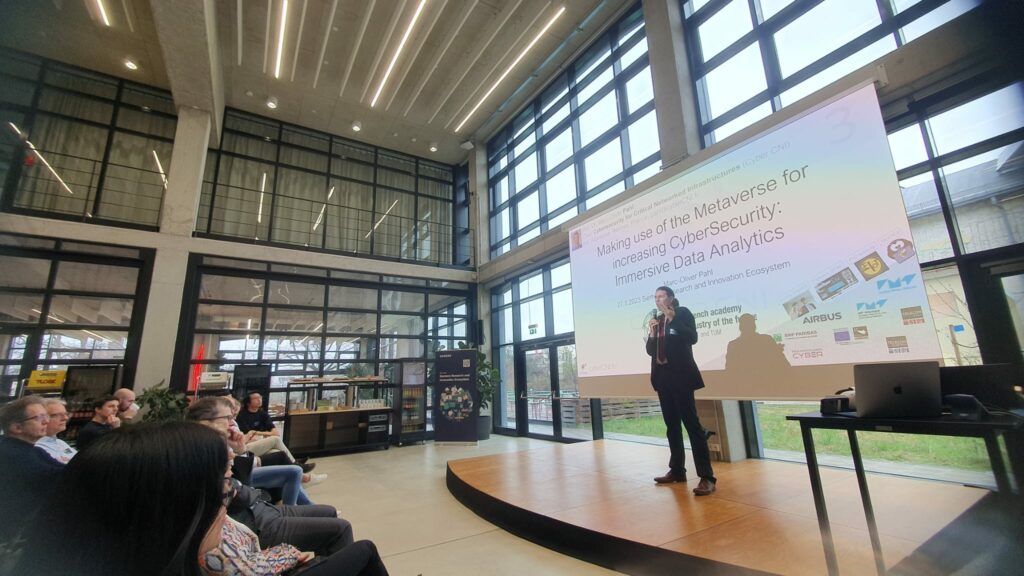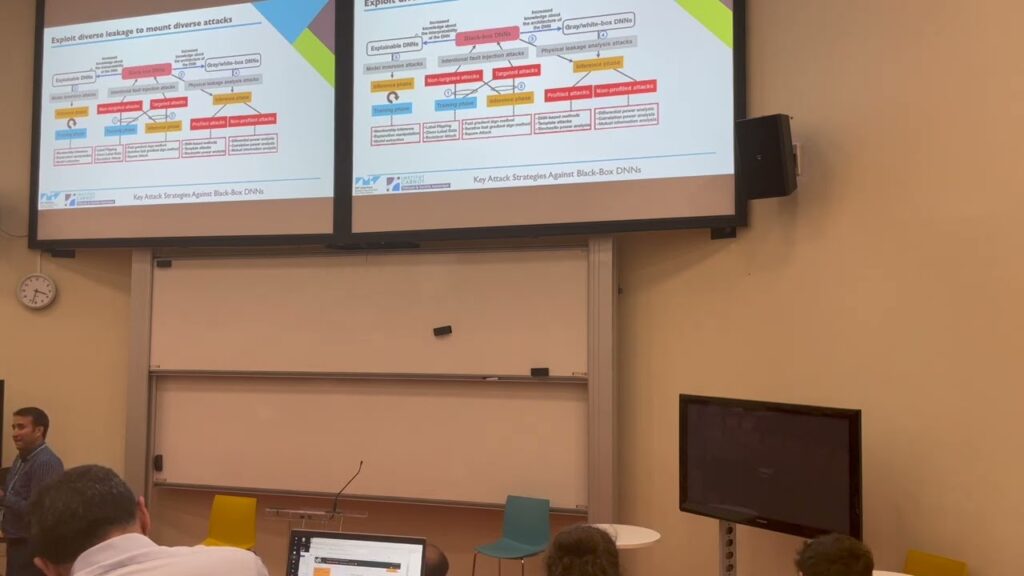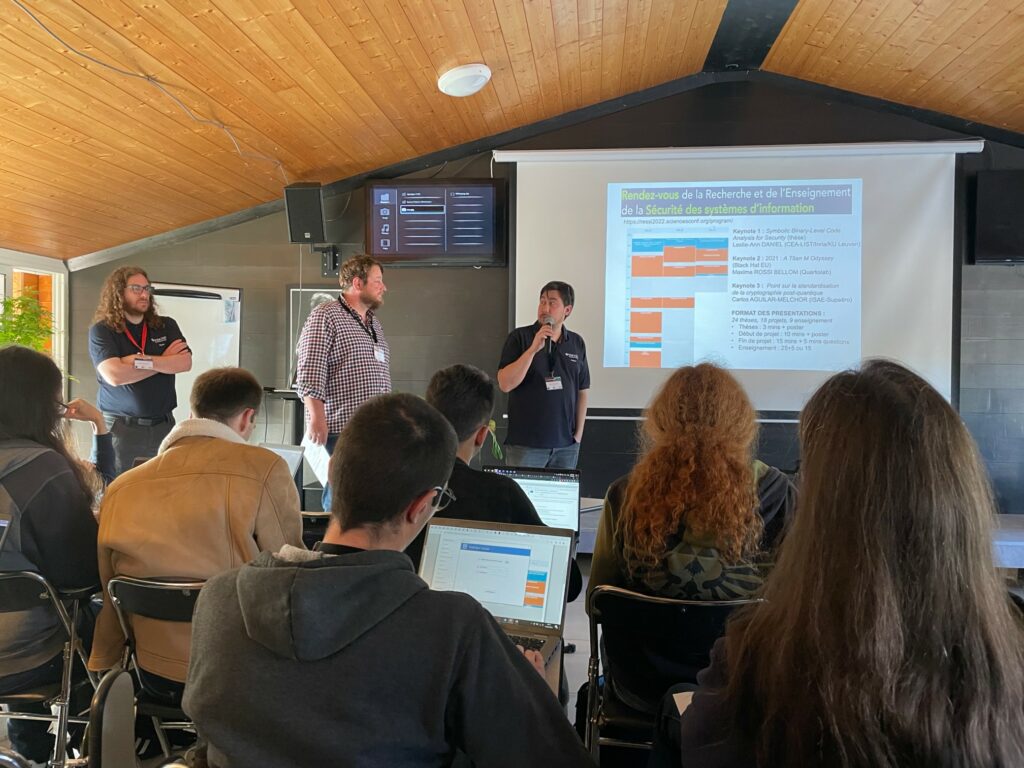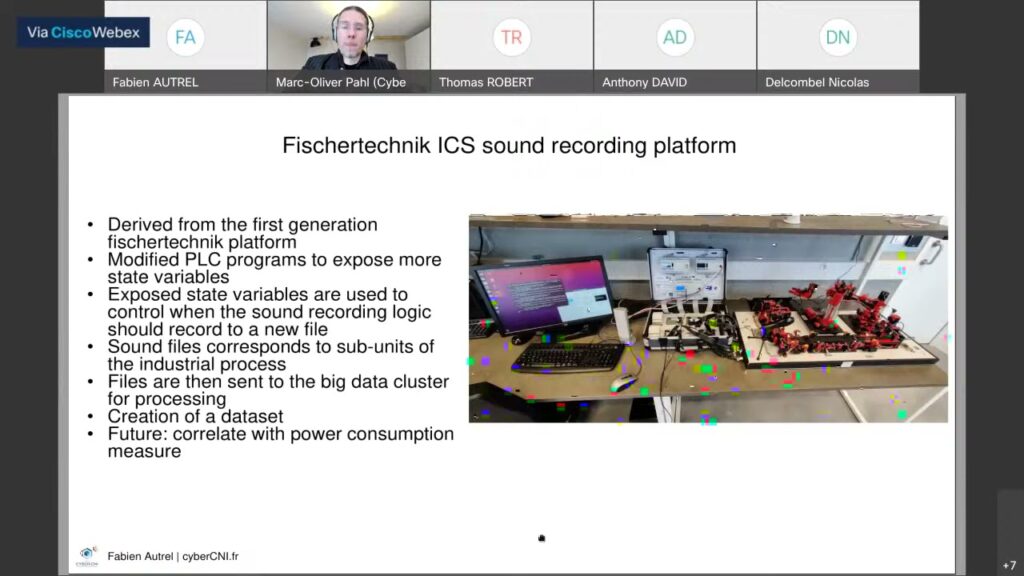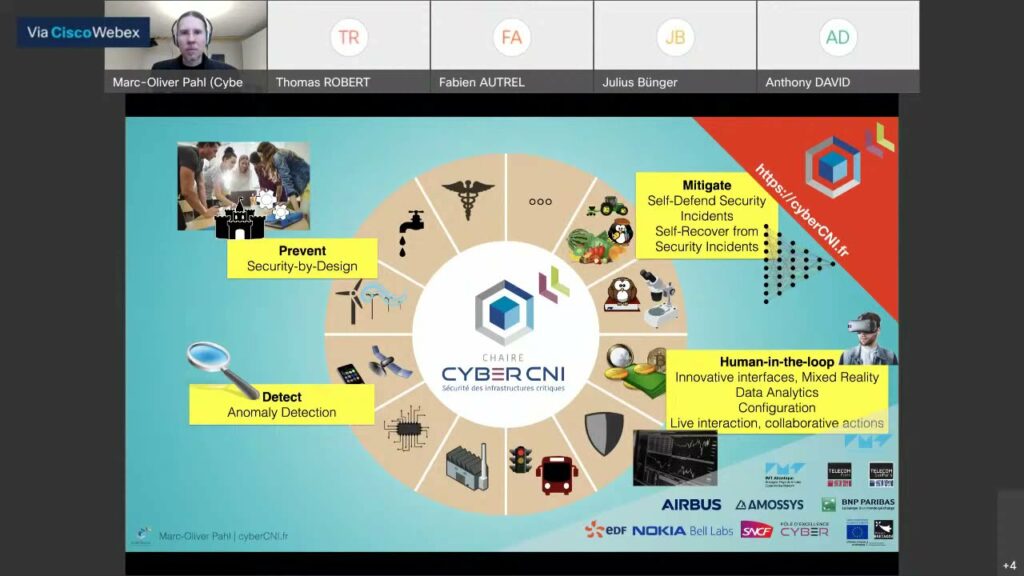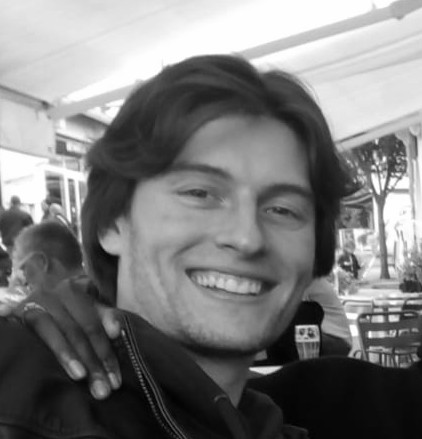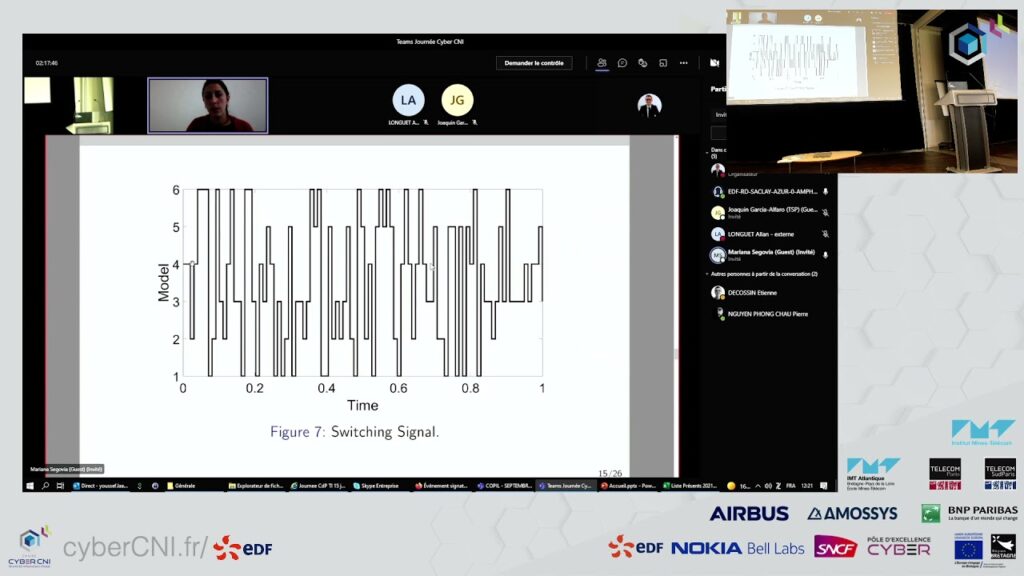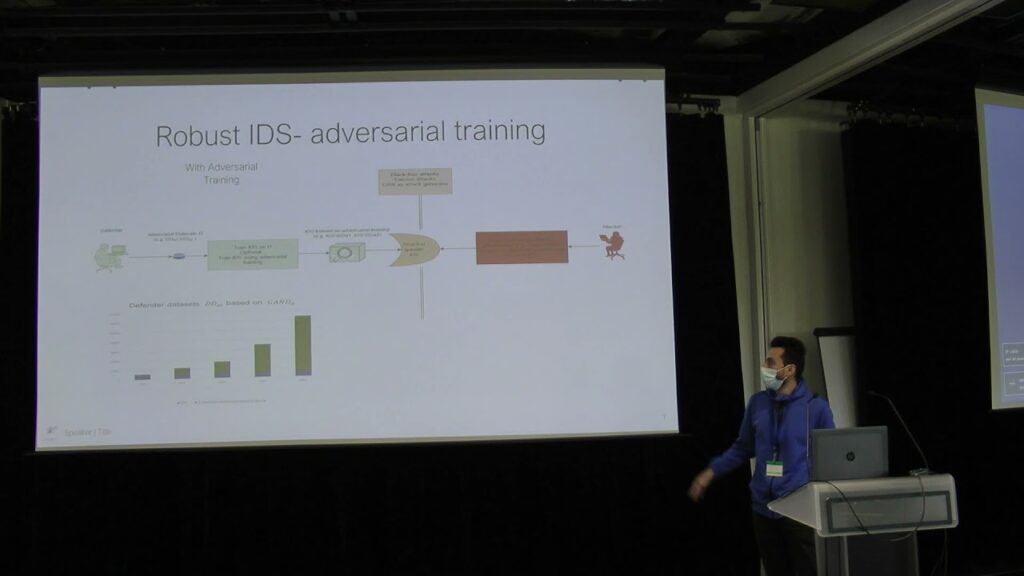We are excited to share the news that our chairholder Marc-Oliver Pahl is going to give a keynote on “Defending the Digital Realm: A Holistic Approach to Cybersecurity from the sound of Robot Arms over collaborating competitors to Human Retinas” at the 8th International Conference on Mobile, Secure and Programmable Networking in Paris on Oct 27, 2023!
End of May 2023, our chairholder Marc-Oliver Pahl was giving a keynote on “The technological millefeuille: from sensor security to data processing” at the International Symposium on Cybersecurity and IoT at the ESAIP engineering school.
On March 27, 2023, at the Siemens Research and Innovation Ecosystem (Siemens RIE) “Digitalization & Low Code Engineering in Industry” our chairholder Marc-Oliver Pahl presented our works on the Metaverse and Cybersecurity. We see the Metaverse as the ideal subject for cybersecurity research today.
At the 2022 IMT Atlantique research seminar, Yassine Hmamouche presented our joint works on “Key Attack Strategies Against Black Box DNNs”. This work happens in the frame of an intra-school collaboration project with Yehya Nasser and Amer Baghdadi of IMT Atlantique Brest that are experts on hardware security. For the chaire cyberCNI.fr this work is relevant as it complements our work on security of hardware systems coming form the software side.
The chaire cyberCNI.fr participates at the “Rendez-vous de la Recherche et de l’Enseignement de la Sécurité des Systèmes d’Information” (RESSI) 2022. RESSI is a scientific event that aims to bring together and animate the French-speaking community of academic and industrial research and teaching related to the security of information systems.
The cyberCNI.fr (https://cyberCNI.fr/) Research Update (Spring/ Fall) happens once per semester. It is the big status event of the chair Cyber CNI. All works around the chair are presenting their progress, current works, and next challenges. In this talk, our research engineer Fabien Autrel presents how we improved our testbed based on Fischertechnik and CyberRange technologies.
The cyberCNI.fr (https://cyberCNI.fr/) Research Update (Spring/ Fall) happens once per semester. It is the big status event of the chair Cyber CNI. All works around the chair are presenting their progress, current works, and next challenges. The year 2021 was rich of activities. In this talk, our chairholder Marc-Oliver Pahl presents an overview of the most important activities of the year. The perfect possibility to catch up with the ecosystem of the chaire Cyber CNI.
Le 07/03/2022 à 09:30, M. Raphaël LARSEN, Département ITI – laboratoire LATIM soutiendra publiquement ses travaux en vue de l’obtention du grade de “Docteur d’IMT Atlantique”. Vous trouverez le streaming en direct et l’enregistrement ici : https://youtu.be/1rt1cwH8yFY
On Sep 21, 2021, we had the pleasure to visit our partner EDF in Paris Palaiseau. Today, Mariana present her work. In her talk, she will explain how to make control of cyber-physical systems resilent, using switched linear control system.
On Sep 21, 2021, we had the pleasure to visit our partner EDF in Paris Palaiseau! Here is another highlight presentation:
Hassan CHAITOU, Security risk optimization for learning on heterogeneous quality data
A classifier is a component used in the automation of “decision-making” or complex data abstraction: intruder detection, speed limitation extraction. For an efficient classifier, the training must be on a large volume of data and be renewed over time by integrating or revoking certain learning data. From a security point of view, this process represents a risk since it offers the attacker various ways of degrading classifier performance (either by forcing classifications mischievous, either by randomly degrading its performance). These two types of attacks require more or less effort from the attacker.
This risk is exacerbated when data comes from sources (network equipment, organizations) corresponding to heterogeneous trust levels. Hassan’s thesis aims at controlling the risk associated with this update via game theory in the case where the confidence in the learning data is not homogeneous.
